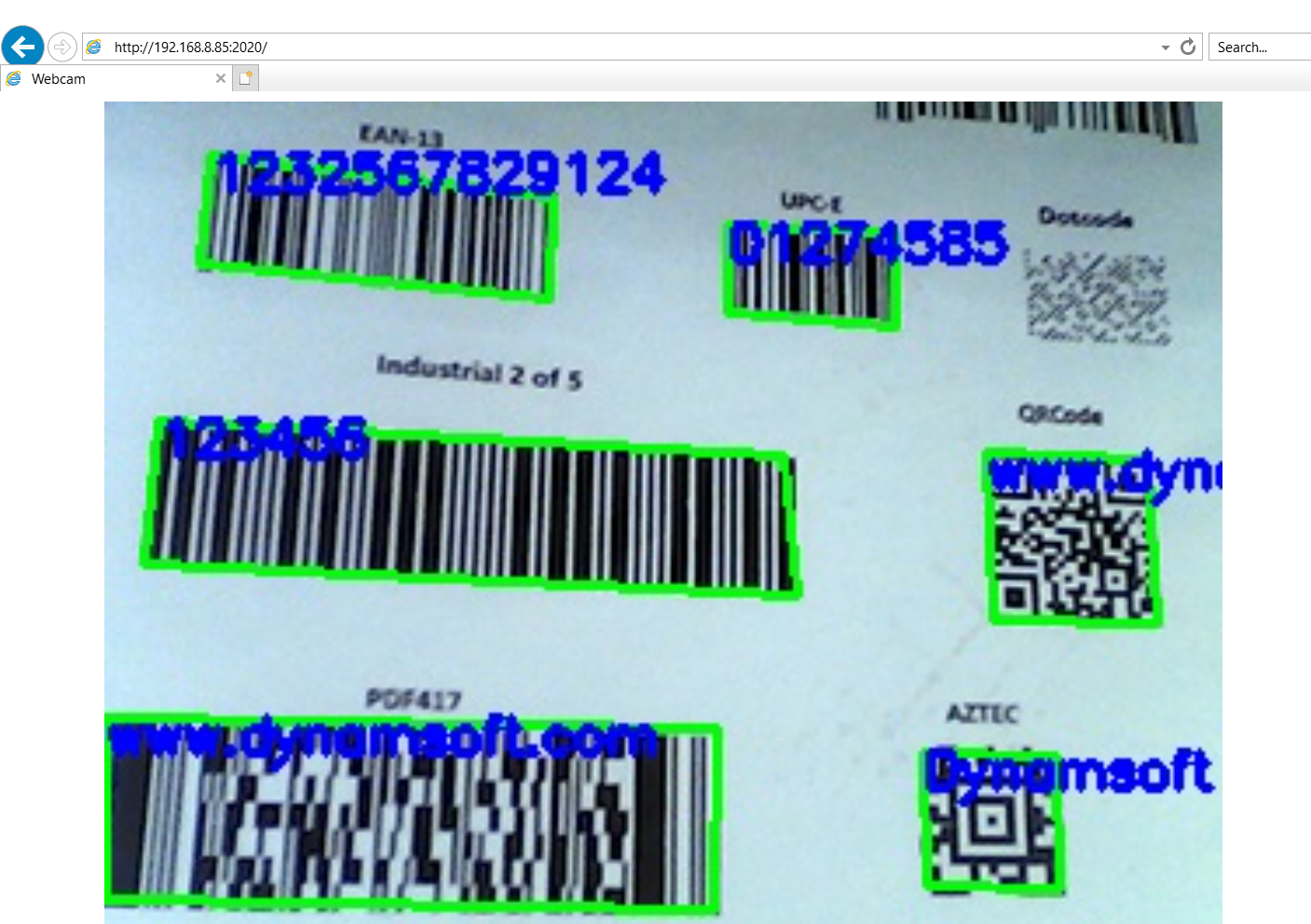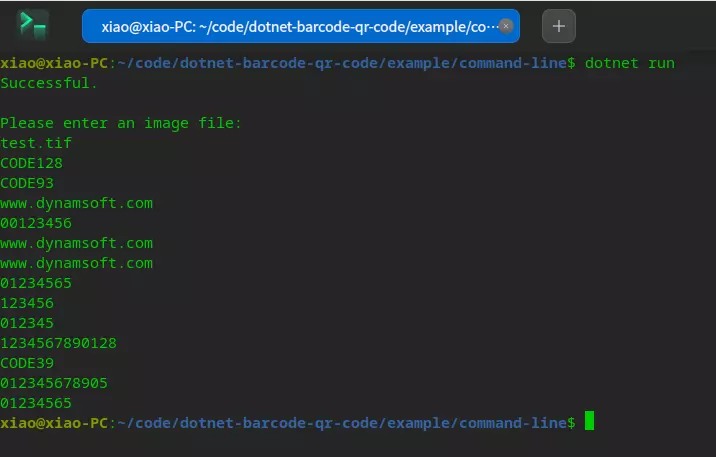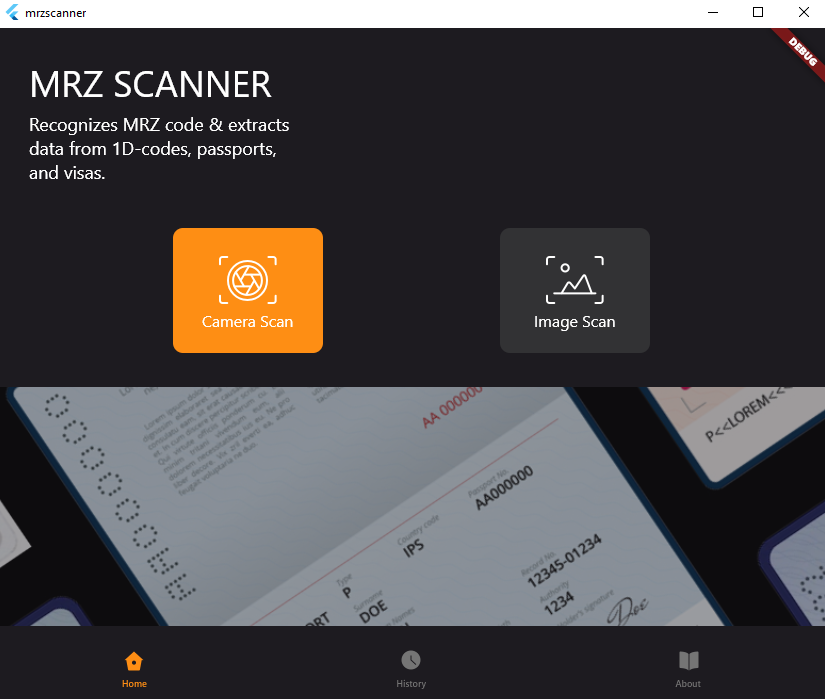Dynamsoft Developer Blog
Featured Content
View More >
Node.js Barcode and QR Code Reader for Desktop and Web

How to Build .NET 6 Barcode and QR Code SDK for Windows, Linux & macOS

How to Create a Cross-platform MRZ Scanner App Using Flutter and Dynamsoft Label Recognizer

QR Code Reading Benchmark and Comparison

What are the Best Data Matrix Reading SDKs?
-
Apr 18, 2024 Document Scanning
Node.js, Express, and Jade are technologies often used together to build web applications. Node.js runs the server, handling HTTP requests and responses. Express is used to simplify the routing and middleware setup, managing everything from routes to handling requests and views. Jade is used as the templating engine within Express....
-
Apr 18, 2024 Capture Vision
An identity document or ID card is any document that may be used to prove a person’s identity. There are various forms of identity documents: driver’s license, passport and formal identity card. Barcodes and MRZ (machine-readable zones) are often printed on an ID card so that its info can be...
-
Apr 17, 2024 Barcode
If you want to use the PHP Laravel framework to build a web-based barcode and QR code reader, you can implement the barcode detection logic on either the client side or the server side. Dynamsoft offers a variety of SDKs for different platforms, including desktop, mobile, and web. In this...
-
Apr 17, 2024 Barcode
When using PHP, you may sometimes need to integrate a few C++ libraries. This article guides you through the process of building a PHP Barcode and QR Code reading extension using the Dynamsoft C++ Barcode SDK on both Windows and Linux. This article is Part 1 in a 2-Part Series....
-
Apr 14, 2024 Document Scanning
Shadow DOM is a web standard designed to encapsulate HTML and CSS into web components. It allows for the creation of separate DOM trees and specifies how these trees interact with each other in a document. Polymer is a library developed by Google to make it easier to create reusable...
-
Apr 10, 2024 Document Scanning
Laravel is a PHP Framework. This article shares how to use Dynamic Web TWAIN to scan and upload documents in a Laravel project, enhancing web document management capabilities. This article is Part 5 in a 5-Part Series. Part 1 - Building Web Document Scanning Applications with ASP.NET Core MVC Part...
-
Apr 10, 2024 Capture Vision
An identity document or ID card is any document that may be used to prove a person’s identity. There are various forms of identity documents: driver’s license, passport and formal identity card. Barcodes and MRZ (machine-readable zones) are often printed on an ID card so that its info can be...
-
Apr 09, 2024 Document Scanning
Django is a popular Python framework for web development. In this tutorial, we will create a web application using Django and Dynamic Web TWAIN. This article is Part 4 in a 5-Part Series. Part 1 - Building Web Document Scanning Applications with ASP.NET Core MVC Part 2 - How to...
-
Apr 08, 2024 Mobile Barcode Scanner
In a previous article, we developed a barcode and QR code scanner for Windows and Android using Qt6. In this follow-up, we’ll extend the project to include support for iOS devices. To achieve this, we’ll integrate the Dynamsoft iOS Barcode Reader SDK. To facilitate seamless communication between the SDK and...
-
Apr 06, 2024 Mobile Barcode Scanner
Qt is renowned for its cross-platform capabilities, enabling developers to craft applications for Windows, macOS, Linux, iOS, and Android. In this article, we will construct a QR code scanner for Windows and Android utilizing Qt6. The sample code will be presented in C++ and QML, employing the Dynamsoft Barcode Reader...